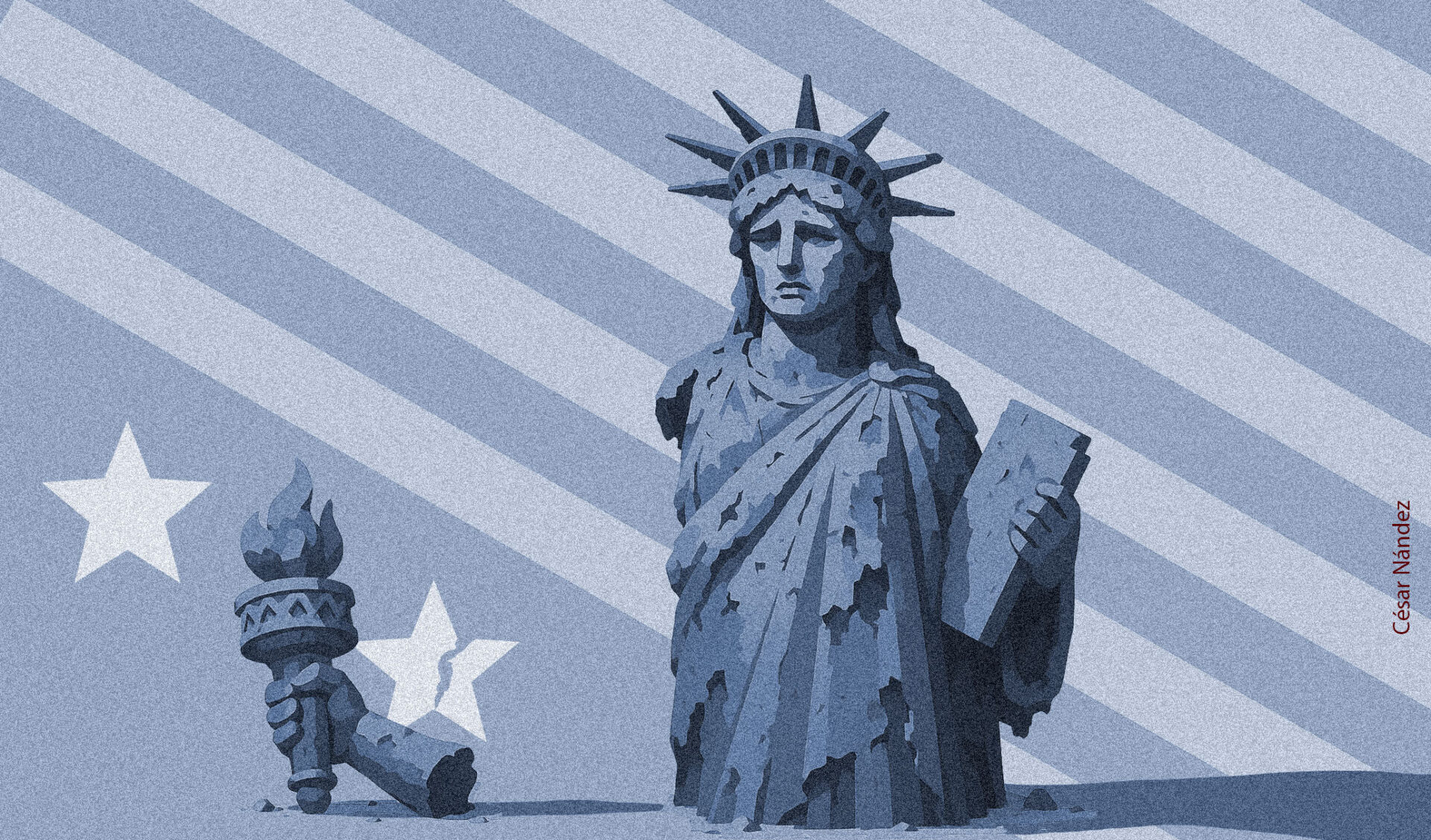The United States is undergoing a rapid process of democratic erosion. Despite its limitations, until January 2025 it still had a democratic regime with relatively free and fair elections (though more so in some states than others), universal suffrage, no tutelary authorities, protection of political rights and civil liberties, and a series of checks and balances that restricted executive power. Today, that regime has changed substantially. Following the playbook of Hugo Chávez in Venezuela or Nayib Bukele in El Salvador, over the past ten months the administration has dismantled the federal bureaucracy, usurped legislative powers, used government agencies to attack, censor, and extort universities, media, and opponents, and violated due process for immigrants (and African American citizens). The shift has been so extreme that political scientists Steven Levitsky and Lucan Way have declared that the United States is no longer a democracy but a competitive authoritarian regime.
The implications of this autocratization process in the U.S. for Latin America are catastrophic. Empowered by a submissive Congress and Supreme Court—whose majorities are more concerned with ideological victories than with the rule of law or civil and political liberties—Trump has been able to operate with minimal constraints. Despite efforts by district, state, and federal courts to block executive orders and actions that violate the Constitution, the president has managed to find ways around adverse rulings or inconvenient requirements. This is particularly true in areas where the presidency has traditionally enjoyed great flexibility—especially those affecting Latin America—such as foreign aid, immigration, and drug enforcement.

In one of his first acts, Trump suspended or eliminated U.S. international aid programs previously approved by Congress. The 2024 budget included, among other things, $90 million for democracy promotion in Cuba, Venezuela, and Nicaragua; $125 million to combat fentanyl flows in Mexico and cocaine trafficking in Colombia, Ecuador, Peru, Panama, and Costa Rica; and $82.5 million for programs to prevent human trafficking and reduce violence against women in Central America. The dismantling of USAID and the State Department’s human rights programs has been accompanied by measures to end immigration from the Global South. Early in his term, Trump abruptly suspended the asylum and refugee programs and terminated temporary protection for more than 600,000 Haitian and Venezuelan immigrants.
Worse still, since March, the administration has used Immigration and Customs Enforcement (ICE) to detain and deport immigrants without due process. By September 2025, ICE had detained more than 59,000 people—71.5% of them without criminal records—and deported 234,210, many without judicial orders. The process has been so arbitrary that ICE raids have even captured 170 U.S. citizens. Those detained—citizens or not, with or without legal status—are subjected to cruel and inhumane treatment, often disappearing into the immigration detention system or being deported without contact with lawyers or family. For those of us who grew up in Latin America hearing about the human rights abuses of dictators like Rafael Videla or Augusto Pinochet, the images of masked ICE agents refusing to identify themselves or present warrants while loading people into unmarked cars are disturbingly familiar.
The consequences of these immigration policies are especially severe for Latin America. They not only endanger our compatriots but also reduce the number of Latin Americans living and earning in dollars—whether through deportation or voluntary departure driven by fear. Over time, fewer migrants in the U.S. mean fewer remittances, closing a vital economic valve for fragile economies. According to the Inter-American Development Bank, remittances range from 0.1% of GDP in Argentina to 27.6% in Nicaragua. Countries like El Salvador, Honduras, and Guatemala derive around one-fifth of their income from remittances—60% of which come from North America.
The crackdown on migrants, the closure of legal entry routes, and the elimination of economic aid coincide with the U.S. government’s decision to use military force against Venezuela. Over the last three months, U.S. forces have attacked Venezuelan (and Colombian) vessels allegedly carrying drugs. These attacks violate international law and expose worrying changes in the rule of law within the U.S. In a liberal democracy, security forces cannot act as prosecutor, judge, and executioner. Even if evidence of drug trafficking existed—which is not entirely clear—due process requires that the ship be detained, evidence collected, and suspects tried in court.
The administration’s warlike rhetoric, combined with increased military presence in the Caribbean and the authorization of covert intelligence operations in Venezuela, signals a dangerously inflammatory policy. Some senators fear that the president may even declare war unilaterally—an unprecedented and devastating step for the region.
This brings a final reflection. U.S. support for democratic (or authoritarian) leaders and regimes has long been essential to the stability of democracy (or dictatorship) in the Americas. Over the last two decades, democracy has been threatened and weakened in several countries. Overthrowing dictatorships in Venezuela or El Salvador and protecting democracy in Argentina, Colombia, or Guatemala requires strong democratic allies capable of exerting pressure to complement pro-democracy movements. Trump’s erratic policy toward Venezuela, unconditional support for authoritarian-leaning leaders like Nayib Bukele or Javier Milei, and hostility toward populist figures such as Gustavo Petro all contribute to political polarization, impunity, and the growing influence of autocratic powers like China and Russia—undermining democratic actors and institutions across the region.
It is difficult to predict how far the erosion of democracy in the U.S. will go. Despite important resistance, the administration’s authoritarian excesses are mobilizing domestic opposition. With some luck, this mobilization may curb its authoritarian impulses. But until that happens, it is hard to rely on the U.S. to defend democracy and human rights in the region. So far, the regional response has been fragmented and, in some cases, improvised. Latin America would do well to seek collective responses, strengthen democratic leadership, and prepare jointly for the repercussions of the Trump administration.
*Machine translation, proofread by Ricardo Aceves.











